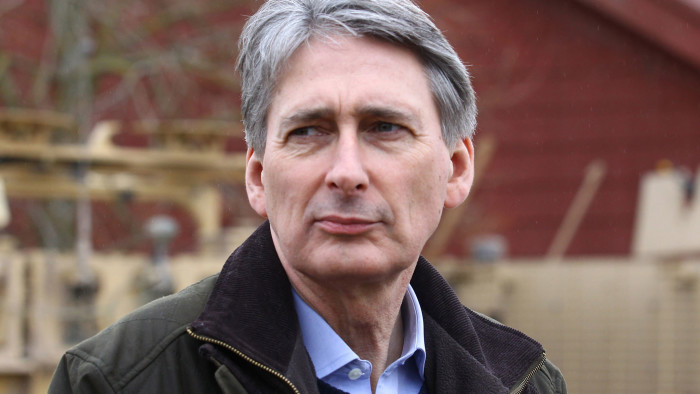Defenders of union come under fire over tactics

Roula Khalaf, Editor of the FT, selects her favourite stories in this weekly newsletter.
Philip Hammond, defence secretary, on Tuesday concluded two weeks of heavy pounding by the British military on Alex Salmond, the Scots first minister, in the latest attempt to halt his advance ahead of September’s independence referendum.
If recent experience is repeated, Mr Salmond will emerge unscathed, leaving his opponents to dwell on the effectiveness, co-ordination and tone of the campaign to save the United Kingdom.
Since last autumn, Mr Salmond’s Yes campaign has steadily gained in the polls. For example, YouGov has found support for independence rising on a steady trajectory from 31 per cent last November to 37 per cent last month.
Although that survey put support for the union on 52 per cent – still a lead of 15 per cent – other polls have suggested the gap is much smaller.
The pro-union Better Together campaign has rolled out most of its policy arsenal already. The three main parties have warned that an independent Scotland could not share the pound with the rest of the UK; José Manuel Barroso, European Commission president, has cast doubt over Scotland’s ability to stay inside the EU; business leaders have warned that jobs and investment would flow south to England.
Meanwhile Mr Hammond has orchestrated a campaign in recent days, featuring former armed forces chiefs and the First Sea Lord Sir George Zambellas, warning that independence would jeopardise the security of Scotland and the rest of Britain.
On Tuesday Mr Hammond told an audience of defence workers in Glasgow that the departure of the Royal Navy from an independent Scotland could jeopardise “billions of pounds of investment” and thousands of jobs.
He also claimed an independent Scotland would have to foot part of the cost of removing the Trident submarine base from the Clyde. Angus Robertson, the SNP’s leader at Westminster, said Scots would invest in maritime patrol aircraft and ships rather than an unwanted nuclear deterrent.
Mr Hammond’s intervention was supposed to put the SNP on the back foot but it also exposed tensions between Labour and Conservatives over the way the pro-union campaign is run.
The cross-party campaign, led by former Labour chancellor Alistair Darling and based in Edinburgh, says it was not told until late in the day that Mr Hammond was planning to visit Scotland; the defence secretary denies this.
“Individual ministers need to know that their diaries are not their own when it comes to visiting Scotland,” insisted one campaign member, urging better co-ordination between Westminster and the Edinburgh campaign.
George Osborne, the chancellor, chairs the cabinet on Scotland issues and oversees British ministerial interventions, including on the currency question; but the Westminster operation is supposed to co-ordinate closely with Mr Darling’s team.
In depth

Scotland will decide in a referendum to be held on September 18 2014 whether or not to end the 306-year-old union with England
Meanwhile one Labour official claimed Mr Hammond had made “unhelpful” negative attacks on the SNP, repeating a common criticism that the pro-union campaign has failed to promote the positive case for Scotland staying in the UK.
Mr Darling has insisted that the pro-union campaign will continue to challenge Mr Salmond on the economic issues around independence, but has accepted that all participants have to be “enthusiastic” in the way they make the case.
Mr Hammond’s aides say 75 per cent of the defence secretary’s speech in Glasgow was “positive”, although the media tend to focus on the warnings – the SNP call them “scare stories” – on the potential consequences of independence.
Mr Darling is urging colleagues to raise their game for the “short campaign” that will begin in earnest once the May 22 European and local elections are out of the way, but is also calling for a sense of perspective: he argues that most polls still show a strong lead for the pro-union camp.
David Cameron is expected to visit Scotland on several occasions before the September 18 referendum, and has also told Tory colleagues to stop sniping at Mr Darling and Better Together and get behind the campaign. “The prime minister thinks Alistair is doing an excellent job,” said one Downing Street official.
Anthony Wells, YouGov associate director, said that in referendum campaigns in other countries, polls tended to move towards the status quo. “Alex Salmond has to be congratulated on bucking that trend,” he said. “But there are five months to go and there is still a big gap to fill.”
Comments